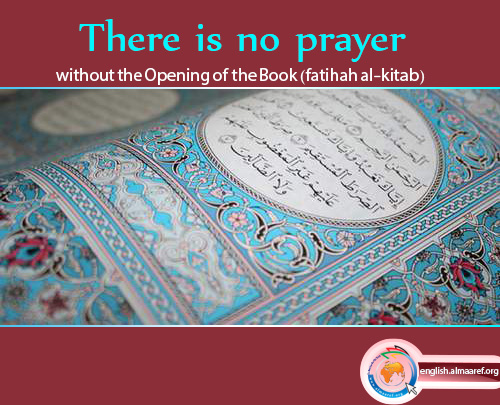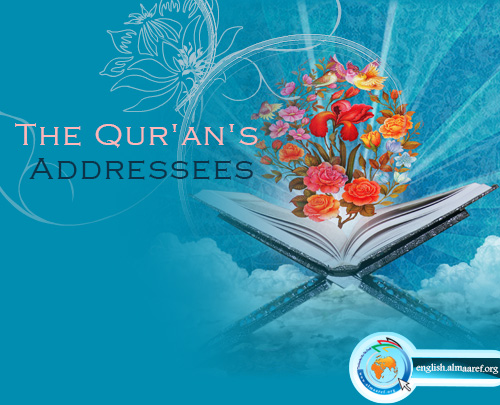Imam was an expert in the field of exegesis of the Holy Quran.
Definition of Interpretation:
The science of exegesis and interpretation is a very complex one and so, there
are so many definitions available for it. According to "Amin al-Islam Tabarsi"
exegesis and interpretation is unveiling the obscure words. In other words it is
uncovering the verses of the Holy Quran and their purposes.
Imam's Works on Exegesis (Tafsir) of the Holy Quran:
On different occasions, Imam interpreted the Holy Quran verses and these
interpretations have been compiled in five volumes. This exegesis of the Quranic
verses by Imam contains so many niceties and nuances of interpretation. Imam's
Exegesis (Tafsir) of the verses of the Holy Quran can be traced in his works
like, "Adab-o-Salah", "Sahifah i-Imam", "Kashf al-Asrar", "Sharh i-Dua i-Sahar",
"Sharh i-Chehel Hadith", etc.
Imam's viewpoints on Exegesis (Tafsir) of the Holy
Quran:
According to Imam Khomeini, the major element in the Exegesis (Tafsir) of the
Holy Quran is expressing the purposes of the verses of the Holy Quran and
stating the intention of Allah the Almighty. He believed that no thorough and
exhaustive interpretation of the Holy Quran is provided yet and expresses his
dismay why brutal monarchs during the early period of Islamic history did not
allowed the Twelve Infallible Imams to provide a perfect interpretation of the
Holy Quran. He does not consider available interpretations as perfect
interpretations and only considers them as exemplifications and definitions,
because he refers to interpretation as disclosing the intention and purposes of
the verses of the Holy Quran. Imam Khomeini considers the Holy Quran as a
miracle not just due to its cohesion, coherence or rhetoric, but in spite of the
Holy Prophet (peace be upon him and his household) not being literate it
contains elevated theosophical and spiritual notions. The interpretation that
Imam Khomeini provides has theosophical dimensions; however, because of Imam's
complete mastery of different Islamic sciences, signs from other fields are
quite traceable.
Imam Khomeini considers the Holy Quran as the reflection of the universe and
mirror of all divine names and attributes of Almighty Allah. The reality of the
Holy Quran in view of Imam Khomeini is that as a divine book it describes the
Greatest Name of the Almighty Allah and considers the Perfect Man as the face of
the Greatest Name of the Almighty Allah.
He considers sublime goal of the Holy Quran to introduce all the names and
attributes of the Allah Almighty. He criticizes Sheikh Baha’i for dividing
divine bounties into worldly and hereafter and says a common person can avail
all of the mentioned divine bounties but a person of high spiritual status
strive for other divine bounties which is obtaining the gnosis of essence,
attributes and actions of the Allah Almighty. Regarding the goals of the Holy
Prophets and the Divine Books, the Holy Quran traverses lofty universal goals.
Imam Khomeini says the Holy Quran itself is firm evidence to the truth of this
divine book which introduces itself. He mentions that if anybody wants to know
the Holy Prophet (peace be upon him and his household) should learn and know the
Holy Quran. He stresses that deep pondering in the teachings of the Holy Quran
has been insisted in the teachings of this divine book.
Most of the books of Imam Khomeini on gnosis expound this characteristic of the
Holy Quran that this divine book trains human beings. In the views of Imam
Khomeini one of the important goals of the Holy Quran is to establish a
government based on justice in the world. In the views of Imam Khomeini the Holy
Quran is a divine book which fulfils all the needs of humanity and has taken
into consideration all the aspects of this world and the ever-lasting world
hereafter and have programs for all these aspects.
According to Imam Khomeini, the Holy Quran has not only a heart, but also many
hearts and these hearts are quite interwoven and interrelated with the words of
the Holy Quran. Therefore, everybody according to its capacity and potential can
be bestowed from divine words and verses. Although Imam Khomeini considers the
complete understanding of the Holy Quran exclusive to the Holy Prophet (peace be
upon him and his household) and the Twelve Infallible Imams (A.S.) but he never
stated that self-purified men cannot understand it. Imam Khomeini's pondering
and meditating on the Holy Quran resulted in a deep reliance on the Holy Quran,
so that he based all his affairs on the verses and instructions of the Holy
Quran. He believed that the Holy Quran was the Book of Guidance and replete with
sage, spiritual and mystic orders and instructions. The Holy Quran is the basis
of Islamic sciences and the everlasting miracle of the Holy Prophet Muhammad
(peace be upon him and his household). Thus, I do believe that more we move
toward the approaches of Imam Khomeini we will be successful in creating more
dynamic and innovative Islamic seminaries.
While concluding my article I consider it as my duty to appreciate the efforts
of the respected Cultural Counselor of the Islamic Republic of Iran in Nairobi
and the Nairobi University for organizing this symposium on the Holy Quran and
sincerely thank them for creating suitable ground for interaction between the
scholars of the two friendly and brotherly countries of Kenya and the Islamic
Republic of Iran. I pray for the health, success and more achievements for them
in their noble endeavors.
Bibliography:
The Holy Quran
Adab al-Salat, Imam Khomeini, The Institute for Compilation and Publication of
Imam Khomeini's Works.
Tafsir i-Surah al-Hamd, Imam Khomeini, The Institute for Compilation and
Publication of Imam Khomeini's Works.
Sahifah Noor, The Institute for Compilation and Publication of Imam Khomeini's
Works.
Sharh i-Chehel Hadith, The Institute for Compilation and Publication of Imam
Khomeini's Works.
Exegesis of the Holy Quran in the Works of Imam Khomeini by Syed Muhammad Ali
Ayazi-1389
Hamid Algar, 'Development of the Concept of velayat-i faqih since the Islamic
Revolution in Iran,' paper presented at London Conference on vilayat al-faqih,
in June, 1988, quoted in "The Rule of the Religious Jurist in Iran" by Abdulaziz
Sachedina, p.133 in Iran at the Crossroads, Edited by John Esposito and R.K.
Ramazani

















